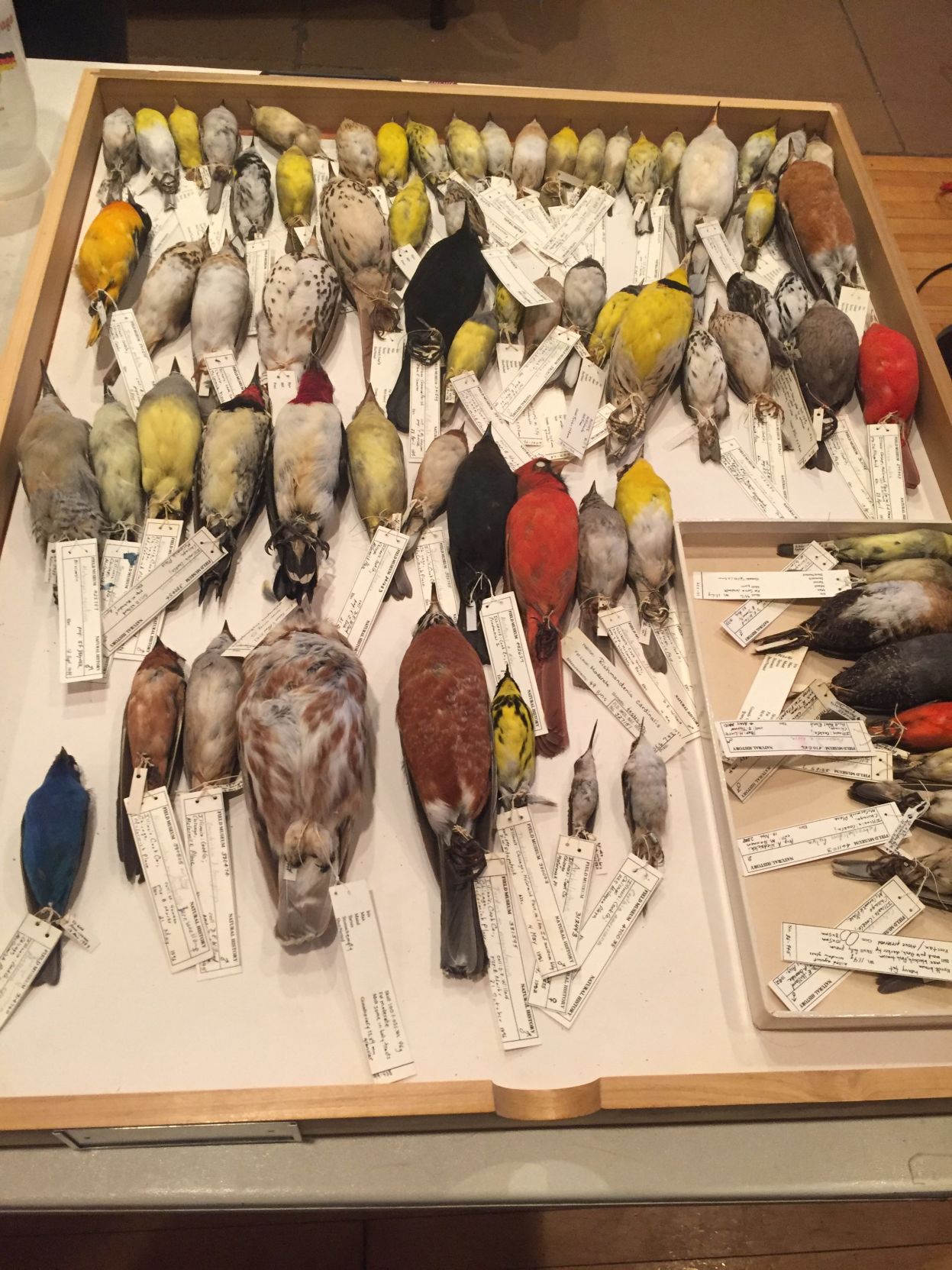By Elisa Shoenberger, Staff Writer
Each year nearly one billion birds die in collisions with buildings, according to a study in “Frontiers in Ecology and the Environment” and the study considers Chicago to be the most hazardous city in America for birds.
Chicago sits in the center of a major migratory corridor. Birds, confused by office lights or the glow from a window late at night, become disoriented and slam into windows and fall to the street, dead or injured.
The Chicago Bird Collision Monitors (CBCM) patrols downtown Chicago to find injured and deceased birds from sunrise to 9 a.m. Injured birds are brought to wildlife centers outside the city while dead birds are taken to the Field Museum for collection and study.
Ben Marks, Head of Zoological Collections and Collections Manager of Birds, estimates the Field receives nearly 5,000 specimens from about 140 different species of birds each year.
Mary Hennen, Assistant Collections Manager of Birds, said the specimens become part of the research collection. She said it’s important to track when and where the bird specimen was found to compare years and locations.
Researchers use that data to track migratory habits. For example, Hennen said a study on white throated sparrows showed the birds’ bill sizes were shrinking.
CBCM Director Annette Prince said if a bird is injured, pedestrians can trap it in a dark paper bag or box to calm the bird and then contact CBCM. She said even if the bird seems fine, it may have injuries that aren’t visible.
If the bird is dead, pedestrians should collect it in a plastic bag and call the CBCM and a volunteer will take it to the Field. Hennen said bird collectors should note when and where it was found.
To prevent bird collisions people should close curtains or make their windows less reflective. CBCM is working on a Bird Friendly Design Ordinance to make new construction less dangerous for migrating birds.
“These birds are not local birds,” Prince said. “They are global citizens in our city and since we are a central location, we owe it to them.
Contact CBCM at 773-988-1867 to report an injured or dead bird in Chicago.







(0) comments
Welcome to the discussion.
Log In
Keep it Clean. Please avoid obscene, vulgar, lewd, racist or sexually-oriented language.
PLEASE TURN OFF YOUR CAPS LOCK.
Don't Threaten. Threats of harming another person will not be tolerated.
Be Truthful. Don't knowingly lie about anyone or anything.
Be Nice. No racism, sexism or any sort of -ism that is degrading to another person.
Be Proactive. Use the 'Report' link on each comment to let us know of abusive posts.
Share with Us. We'd love to hear eyewitness accounts, the history behind an article.